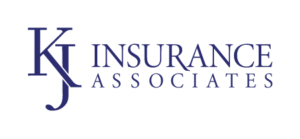Retirement can be a time of great joy, but it also requires careful financial planning. For seniors living on a fixed income, understanding the ins and outs of Medicare and Medicaid coverage is essential for making sure you have the coverage you need when you retire.
This article will provide an overview of how to prepare financially for retirement with Medicare and Medicaid coverage, including information about enrolling in Medicare Parts A & B, additional coverage options such as Medigap or Medicare Advantage plans, and other considerations such as final expense insurance.
Enrolling in Medicare Parts A & B
When you turn 65 (or if you are already over 65), it’s important to sign up for both Part A and Part B of Medicare. Part A covers hospital stays, while Part B covers doctor visits. You can sign up online at www.ssa.gov or by calling the Social Security Administration toll-free at (800) 772-1213, or TTY users call (877) 325-0778.
It’s important to be aware of the deadlines for enrolling in Medicare Parts A & B, as failing to do so within the designated window may result in late enrollment penalties. Furthermore, there are certain eligibility requirements that you must meet in order to qualify for Part A coverage; these include having worked and paid Social Security taxes for at least ten years. If you choose not to sign up for Part B when you first become eligible, you may also have to pay a late-enrollment penalty. It is best to speak with your local Social Security office or an experienced financial advisor prior to making any decisions related to Medicare enrollment.
Additional Coverage Options
In addition to Parts A & B, there are several other coverage options to consider when preparing for retirement with Medicare and Medicaid coverage. These include Medigap plans which supplement your existing coverage by covering some out-of-pocket costs not covered by traditional Medicare plans; Medicare Advantage plans, which offer more comprehensive coverage than traditional plans; and prescription drug plans which cover the cost of medications not covered under traditional plans.
When considering these additional coverage options, it is important to research the different plans available and their associated costs. Medigap plans vary in terms of eligibility requirements and premiums, so you’ll want to make sure you find a plan that meets your needs without breaking the bank. Medicare Advantage plans also differ in terms of coverage levels and out-of-pocket expenses, so be sure to read all the fine print before signing up for one. As for prescription drug plans, consider how much medications will cost you out of pocket before enrolling in one.
In addition to the health care coverage offered by Medicare and Medicaid, there are other financial considerations you should take into account when planning for retirement, such as final expense insurance.
Final Expense Insurance
For seniors living on a fixed income who may benefit from additional financial protection during retirement, final expense insurance is an option worth considering. Final expense insurance is designed to cover end-of-life expenses, such as funeral costs or medical bills that may not be covered by other forms of insurance. It’s important to shop around for the best policy that fits your needs and budget before signing up for any type of final expense insurance plan.
When shopping for a final expense insurance plan, make sure to compare policies carefully and read all the details. Ensure that your coverage is adequate to cover any expenses you may incur in the event of death or illness. Additionally, consider factors such as premiums, deductibles, co-payments, and out-of-pocket maximums when weighing your options. It’s also important to look into the company offering the policy and investigate its financial stability to ensure that it will be able to provide coverage even if something happens after you sign up for a policy. Ultimately, selecting the right final expense insurance policy can bring peace of mind and help protect your family from financial hardship in difficult times.
By taking the time to understand Medicare and Medicaid coverage, researching additional coverage options, and considering final expense insurance plans, you can feel confident that you are financially prepared for retirement. However, it’s important to remember that everyone’s situation is unique and should be discussed with a financial advisor or other professionals prior to making any decisions. With the right preparation and support, you can have the resources in place to help you enjoy a secure retirement.

